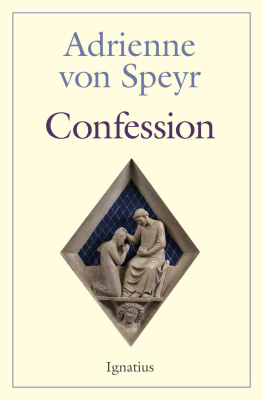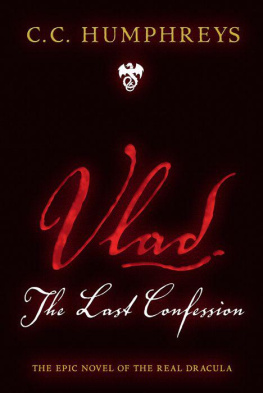WHY WE NEEDCONFESSION
RUSSELL SHAW

February 2011 Printing
Nihil Obstat : Rev. William E. Lori, S.T.D.
Censor Deputatus
Imprimatur:James A. Hickey
Archbishopof Washington
October 29, 1985
The Nihil Obstat and Imprimatur areofficial declarations that a book or pamphlet is free of doctrinal or moralerror. No implication is contained therein that those who have granted the Nihil Obstat and the Imprimaturagree with the contents, opinions, or statements expressed.
Scripturequotations in this work are from the Revised Standard Version, CatholicEdition, copyright 1946, 1952, 1957 by the Division of Christian Education ofthe National Council of the Churches of Christ in the United States of America,and are used by permission.
Quotations ofthe documents of the Second Vatican Council are from Vatican Council II: TheConciliar and Post-Conciliar Documents, 1975 by CostelloPublishing Company, Inc., and Rev. Austin Flannery, O.P., general editor.
ISBN 978-1-59417-062-1
First editionpublished in 1986 by Our Sunday Visitor, Inc. New edition copyright 2000 byRussell Shaw Reprinted with permission in 2000 by Scepter Publishers, P.O. Box 211, New York, NY10018 www.scepterpublishers.org
CONTENTS
Preface
There are many things this book is not.It isn't a systematic exposition of the theology of sin and the sacrament ofPenance; it isn't a history of the sacrament; it isn't a treatise onspirituality; it isn't a polemic against those who hold other views on thematters discussed here. It is not even an argument for returning to the"good old days."
This book is an attempt to explain whyCatholics who either no longer receive the sacrament of Penance or seldomreceive it are making a mistake. Its intention is to encourage those who nolonger go to confession to resume doing so, those who confess occasionally toconfess more often, and those who already know the benefits of frequentconfession from experience to share what they've learned.
I have consulted a number of works inpreparing this book, most particularly Pope John Paul II's apostolicexhortation Reconciliatio et paenitentia (Reconciliation and Penance). Iowe a special debt of gratitude, however, to Dr. Germain Grisez , whose Wayof the Lord Jesus, vol. 1, Christian Moral Principles (Franciscan Herald Press, 1984), hasbeen an invaluable source of a number of the ideas expressed throughout thiswork. I recommend it highly to those interested in a more detailed explanationof these ideas.
R. S.
What'sHappened to Confession?
Why don't Catholics go to confessionanymore? This question, of course, overstates the case. Many Catholics doreceive the sacrament of Penance, and quite a few receive it regularly andfrequently. Penance remains an important element in their spiritual lives.
But the question also corresponds to areality visible in parishes throughout the United States and, apparently, inother countries, as well. Long confessional lines are a thing of the past. ManyCatholics receive penance very seldom, and some, perhaps, not at all.
In the 1980s a study of Catholic life inthe United States found that among "core Catholics"those whoidentify with parishes27 percent never went to confession, 35 percent receivedthe sacrament only once a year, 33 percent several times a year, and only 6percent monthly or more often. Even among "parish leaders," 15percent never went to confession and 33 percent only once a year. There is noreason to think things have changed much since then. Somewhat optimistically,the authors of the study remarked that the sacrament of Penance "remainspart of being a Catholic in the practice of nearly three-quarters of those withparish connections." Yesbut, for most, not nearly as large a part as itused to be.
Why?
Any reasonable answer must give duerecognition to the fact that the situation in the past wasn't an unmixedblessing in all respects. There is reason to think that, for some Catholics atleast, frequent confession was something of a rote exercise. Indeed, for someit had overtones of scrupulosity. Hence the case for frequent confession has tobe based on something besides returning to the not-so- good old days.
But the move away from confession duringthe last three or four decades merely represents a different kind of excess.Common sense suggests that it has complex causes.
I was chatting with some Catholicfriends some time ago when one of them made a rather surprising statement."I don't believe in Original Sin," he said. "I mean, that's thatstuff about Adam and Eve. It's mythology. I don't buy it."
So much forseveral millennia of Christian and Jewish belief. So much for the Old and New Testaments. Somuch for one of the cornerstones of the Redemption. Relegatedto the category of myth. That settles that.
Or does it?
As a matter of fact, merely saying"I don't believe" doesn't settle anything. Sin, whether Original Sinor personal sinis either real or not real. If it's not real, no harm is doneby denying it. But if Original Sin and personal sin are dangerous realities, denying them makes themstill more dangerous, much as denying the reality of a serious illnessincreases the chances that you'll die from it.
I don't cite my friend's remark in orderto criticize him. He, after all, was only voicing sentiments a lot of otherpeople probably share these days. He was being more honest than most.
Original Sin is one thing, though, andpersonal sin is something else. People still believe in personal sin, don'tthey? Or do they? Some years ago, the title of a psychiatrist's book attracteda good deal of attention: WhatEver Happened to Sin? The implication was that, however painfullyaware people might be of the evil in the world, many were increasinglydisinclined to blame themselves for it.
Fish on Friday,Latin in the Mass... and sin. By and large, the first two havevanished from contemporary Catholic life. As for sin, the jury is still out.
In October 1983, more than two hundredbishops and other Church leaders from around the world convened at the Vaticanto discuss such matters as these. The sixth general assembly of theinternational synod of bishops focused on the theme "Reconciliation andPenance in the Mission of the Church." A little more than a year later,Pope John Paul II published his own document on the subject. In it he summed upthe deliberations of the synod and added his own thoughts.
As the holding of this synod suggests,the "disappearance" of sin from the contemporary Church or, to bemore accurate, from the thinking of many contemporary Catholicsis a matter ofhigh-level concern. My friend's comment, typical of many these days, providesgrist for this mill. Evidently there is a need to sort out the issues and seewhat's at stake.
Bring back sin? We could do worse. For,without a clear grasp of the reality of sin, it's hard to see much chance forreconciliation. "To acknowledge one's sin," Pope John Paul observes,"indeed ... to recognize oneself as being a sinner, capable of sin andinclined to commit sin, is the essential first step in returning to God."
Then why do so many people apparentlyhave doubts about sin?
One reason may be that too much was madeof it in the past. To a considerable extent, religion seemed to be largely amatter of avoiding sin, and religious practice seemed to be a way of staying onGod's good side. Love, joy, celebrationthese things tended to get lost in theshuffle.
Often enough, morality was reduced tolegalism. It was presented as a set of rules, a code: don't miss Mass onSunday, don't steal, don't commit adultery. All thiswas sound, and it was based on divine revelation; but it was notself-explanatory. There was a pervasive sense of guilt. Sin and damnationseemed to lurk around every corner, and Saturday-night confession was asintegral a part of popular Catholicism as Sunday-morning Mass.

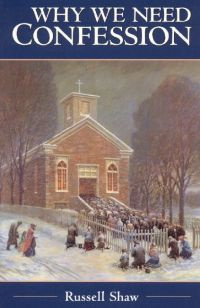
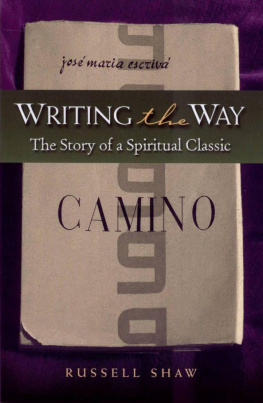
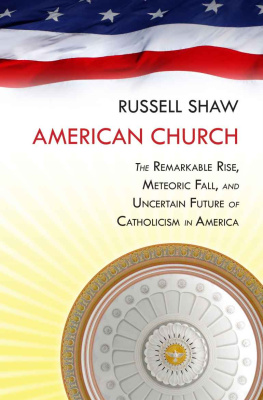
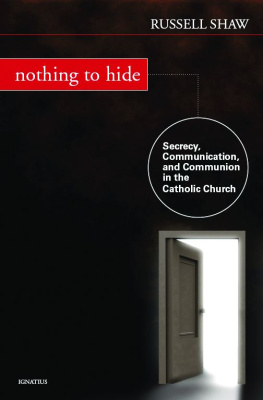
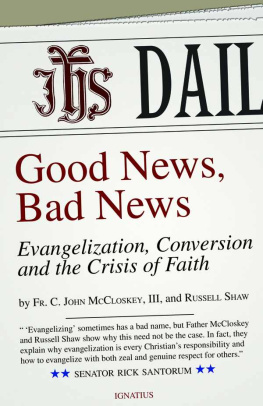
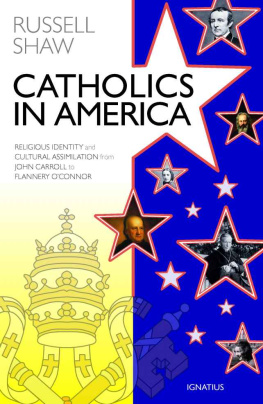

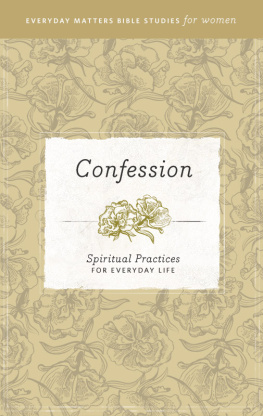
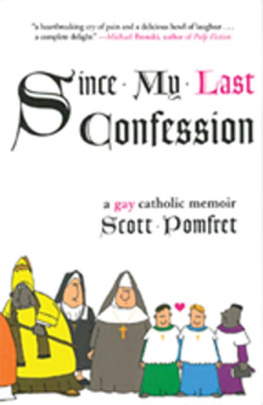
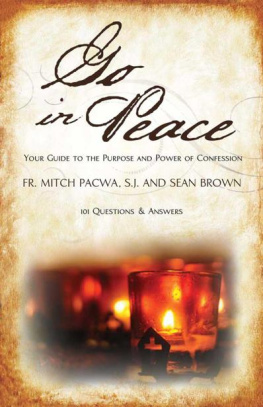
![Scott Hahn [Inconnu(e)] - Lord, Have Mercy: The Healing Power of Confession](/uploads/posts/book/134756/thumbs/scott-hahn-inconnu-e-lord-have-mercy-the.jpg)
